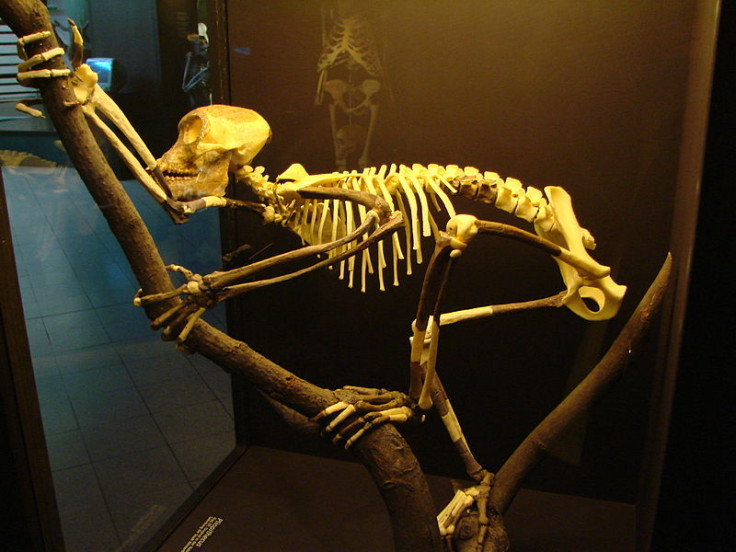Discovery of Ancient Kenyan Primate Proconsul Fossils Redefines Ape-Human Lineage

Anthropologists have discovered definitive evidence of that the early ape Proconsul inhabited Rusinga Island in Kenya.
The research provides a new insight into understanding and interpreting the connection between habitat preferences and the early diversification of the ape-human lineage.
An international team of scientists, including colleagues from the University of Rhode Island, found fossils of a single individual Proconsul, which lived between 18 to 20 million years ago.
Evidence of the extinct genus of primates was discovered among geological deposits that harboured tree stump casts, fossil leaves and calcified roots. Studies have revealed Proconsul had a body position close to that of modern primates, with additional climbing abilities.
The findings were published in the journal Nature Communications, which revealed that the ancient ape and its primate relative Dendropithecus, inhabited a "widespread, dense, multi-storied closed canopy" forest.
In the 1980s, creatures including a fossil ape was preserved in a hollowed out, fossilized tree trunk. However, the team's discovery of an additional tree trunk and fossil primates preserved in the same ancient soil revealed there was a connection between the primate and its habitat at the site.
Research in Rusinga Island has been ongoing for over 80 years, during which thousands of mammal fossils have been discovered.
Holly Dunsworth, an assistant professor of anthropology at URI, said the discovery underscores the importance of forested environments in the evolution of early apes.
She told Science Daily: "To have the vegetation of a habitat preserved right along with the fossil primates themselves isn't a regular occurrence in primate paeleontology. It is especially rare to have so many exquisite plant fossils preserved at ancient ape sites."
Dunsworth added: "It is probably the best evidence linking ape to habitat that we could ask for. Combined with analyses of the roots, trunks and even beautifully preserved fossil leaves, it is possible to say that the forest was a closed canopy one, meaning the arboreal animals, like Proconsul, could easily move from tree-to-tree without coming to the ground."
"This environmental evidence jibes with our behavioural interpretations of Proconsul anatomy - as being adapted for a life of climbing in the trees - and with present-day monkey and ape ecology."
The research, which will continue at the site, could lead to further discoveries about early ape evolution.
Dunsworth added: "We don't know exactly what we're going to find, but without a doubt, if we keep searching, we're going to find knowledge about early ape evolution, which was, of course, a significant chapter in our own history."
© Copyright IBTimes 2025. All rights reserved.






















